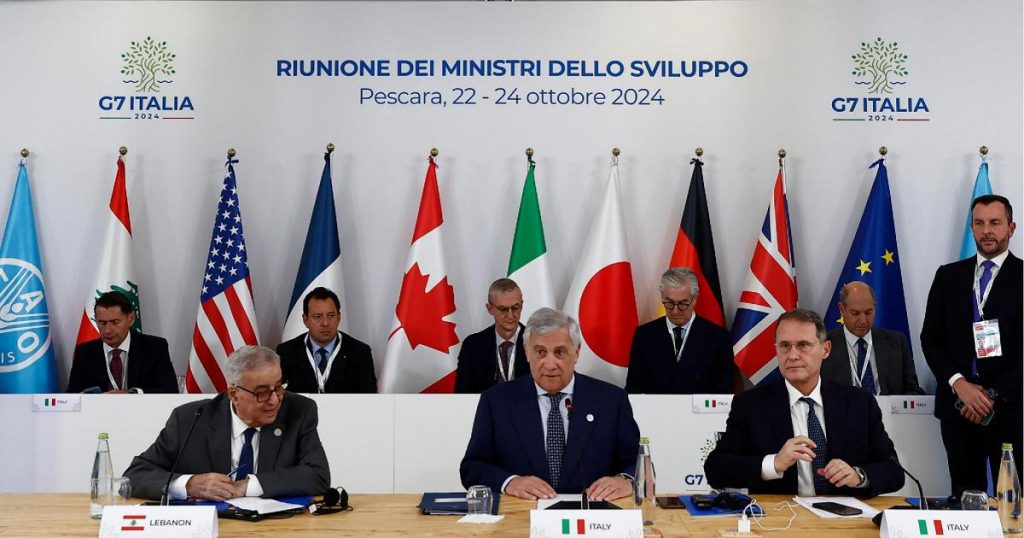Ministers from the G7 Development call for a global ambitious response to the challenges of development and the multiple crises that are hindering progress towards the implementation of the 2030 Agenda and the achievement of its Sustainable Development Goals (SDGs). Meeting in Pescara under the Italian presidency, led by Foreign Minister Antonio Tajani, along with some key partners, they list the many issues their efforts are called upon to address, including the consequences of conflicts, economic decline, poverty, food insecurity, malnutrition, lack of access to quality healthcare, water access, sanitation, global education crises, climate change, environmental degradation, pollution, biodiversity loss, water scarcity, energy insecurity, digital divides, gender inequalities, and discrimination.
The G7 Development ministers express concern for the situation in the Middle East, calling for an immediate ceasefire in Gaza, unconditional release of hostages, increased sustained humanitarian assistance, and an end to the conflict. They emphasize the need to protect civilians and ensure full, rapid, safe, and unimpeded humanitarian access as a top priority. The ministers also express grave concern for the unprecedented level of food insecurity in Gaza and stress the importance of respecting international humanitarian law and facilitating humanitarian aid delivery.
The ministers strongly condemn Russia’s illegal and unjustified aggression against Ukraine, causing devastating impacts on the Ukrainian people, including women and girls, mass displacement, and severe humanitarian needs. They commit to supporting the Ukrainian government in its efforts to protect the health of the people and emphasize the importance of development and reconstruction assistance for Ukraine’s stability, critical infrastructures, economic growth, and social resilience. They look forward to the upcoming Ukraine reconstruction conference in Rome in July 2025.
Building on previous G7 presidencies and initiatives like the EU Global Gateway, and welcoming Italy’s Mattei Plan for Africa, the ministers pledge to strengthen the G7 Partnership for Infrastructure and Global Investment to mobilize up to $600 billion of public and private investments in partner countries. They endorse sustainable, inclusive, zero-climate impact, resilient, and economically viable infrastructure projects through transparent project selection, procurement, and financing processes. They also support regional diversification of sustainable development and medical countermeasure production in Africa, including regional vaccine production initiatives.
In alignment with the African Union’s goal to produce 60% of African vaccines locally by 2040, the G7 ministers commit to supporting increased local production of health products, including vaccines, through partnerships with other countries, including African nations, improving regulatory frameworks, facilitating voluntary technology transfers under mutually agreed conditions, and workforce development. They aim to promote equitable and sustainable access to vaccines and other medical supplies while enhancing regional capacity and resilience in response to health emergencies.


